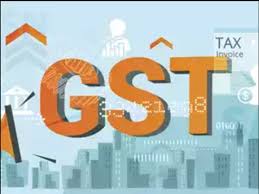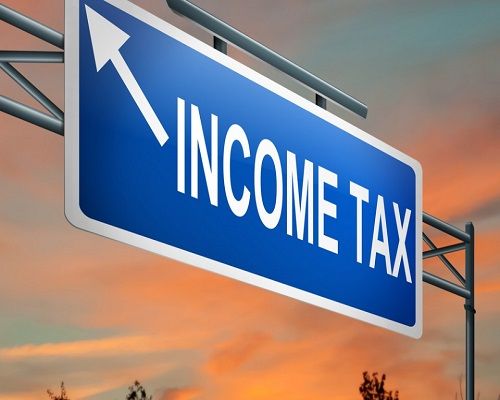INCOME TAX RETURN FILING
Why does ITR needs to be filed?
Income Tax Return is filed for reporting our income details, tax details, etc. to the government so that the government can complete your assessment and can check accordingly if you have paid the correct amount of tax and disclosed all the relevant incomes & its sources.
IMPORTANT SECTIONS
Section 139(1) of The Income Tax Act, 1961 governs the provisions of Compulsory filing of Income Tax Return.
As per this section, companies and firms have to compulsorily file Income Tax return for every previous year on or before the due date.
Further, every person being an individual or a HUF or an AOP or BOI or an artificial person has to file Income Tax Return for every previous year on or before the due date, if his total income without giving effect to the exemptions or any deductions exceeds the basic exemption limit.
This section includes the responsibility of the taxpayer to file Income Tax Return within a time frame.
Section 139(3) states that Return of Loss should also be compulsorily filed on or before the due date. The term “loss” involves business loss, speculation loss, brought forward loss etc.
Since the company is a product of the Companies Act, 2013 it has an indefinite life until unless it is dissolved by the owners legally. The lifetime of any of its owners or managers does not limit it.
Section 139(4) comprises of “Belated Return” which is filed when any person fails to file his return within the given time frame.
This return should be filed at any time:
1. Before 3 months prior to the end of relevant assessment year;
2. Before the completion of assessment; whichever is earlier.
Section 139(5) covers the concept of “Revised Return” .
If any person after filing his return discovers any errors, omissions or any wrong information therein; then he can file a revised return any time:
1. Before 3 months prior to the end of relevant assessment year;
2. Before the completion of assessment; whichever is earlier.
This return can be filed for any required number of times within the given time frame. In this case, the latest filed return will replace all the returns filed earlier.
Section 139(9) covers “Defective Return”
Where the Assessing Officer (AO) considers that the return filed by assessee is defective, he may communicate the defect to him and give him an opportunity to rectify the defect within 15 days from the date of such intimation.The AO has the discretion to extend the time limit beyond 15 days on an application made by the assessee.
Income Tax Return is filed according to the source of income & how much income the assessee has earned.
Section 139(8A) Updated Return
This section is inserted by the recent budget on 02.02.2022.
Any person can file updated return within 2 years from the end of the relevant assessment year under new section 140B for return under section 139(8A):
i) When no return filed earlier OR
ii) When any return filed under 139(1) (Original Return) Or 139(4) (Belated Return) Or 139(5) (Revised Return).
It shall not apply, if the updated return,
i) is a return of a loss or
ii) has the effect of decreasing the total tax liability determined on the basis of return furnished under sub-section (1), subsection (4) or sub-section (5) or
iii) Results in refund or increases the refund due for the relevant assessment year.
Any procedure of search/seizure/proceedings under section 132 or 132A notice has been started against the assessee.
It is also proposed that an amount equal to 25% or 50% as additional tax on the tax and interest due on the additional income furnished would be required to be paid.
TYPE OF INCOME TAX RETURNS:
ITR 1 (SAHAJ)
This return is filed by the assessee who earns income upto 50 Lakhs from the following sources:
1. Salary/pension.
2. One House property which excludes the case where loss is brought forward from previous years.
3. Income from other sources excluding winning from lottery and income earned from horse races.
4. Agricultural income upto Rs.5000.
ITR 2
ITR 2 is filed when the assessee is having income from the following sources:
1. Salary/pension.
2. More than One House property.
3. Income from other sources (including winning from lottery and income earned from horse races).
4. Capital Gains.
5. Agricultural income more than Rs.5000.
ITR 3
ITR 3 is applicable when assessee is having income from
1. Business or Profession (both audit and non audit cases)
The return may include income from salary, house property, capital gains or other sources.
ITR 3 is divided into parts & schedules.
Part A includes General Info, Balance Sheet, Profit & Loss A/C, Income from foreign Assets & Other Information.
Part B includes computation of Total Income & Tax that has to be paid on total income.
Schedules include
Schedule S: Salary Income,
Schedule DPM: Depreciation of plant & machinery.
Schedule 80G: Any donations that are entitled for deductions under Section 80G.
Schedule 10AA: Any deductions under section 10AA.
ITR 4 (SUGAM)
ITR 4 is filed by the assessee who opts a presumptive income scheme u/s 44AD or 44AE for business or 44ADA for professional income.
1. The income from the same should not exceed 2 crores.
2. The net income should be minimum 8% of turnover (6% in case of digital receipts.)
3. You do not need to maintain accounting records.
4. You do not have to get your accounts audited.
ITR 4 is very simple & easier as compared to ITR 3.
Assessee can also have income from salary, house property, other sources upto Rs.50 lakh and should not have capital gains income.
ITR 5
This form is filed by Firms, LLPs, AOP, BOI, artificial juridical person, business trust etc.
It is also divided into parts & schedules.
ITR 6
This form is filed by Companies excluding companies claiming exemption u/s 11.
Companies claiming exemption u/s 11:
These are the companies whose income is derived from property held for charitable & religious purposes.
In case the assessee is liable for audit u/s 44AB that is, tax audit and the accounts have been audited, then information relating to auditor, audit report & date of furnishing audit report should be furnished in ITR 6.
ITR 7
An Individual or company falling u/s 139 (4A),(4B),(4C),(4D) have to file ITR 7.
139 (4A) covers Charitable & Religious Trusts.
139 (4B) covers political parties.
139 (4C) includes scientific research association, news agency etc.
139 (4D) covers university, college etc.
Want to know more about which ITR to file, contact our experts today. It will be a great opportunity to serve you.
Frequently Asked Questions
For checking your ITR status,
firstly login at https://www.incometax.gov.in/iec/foportal, At the dashboard click on e file-Income Tax Returns-View Filed returns.
And here you can see your ITR status.
ITR is attachment-less forms, you do not have to attach any documents like investment proof, etc.
If you have presumptive income and income from salary or house property or other sources more than Rs.50 lakhs, then you have to file ITR 3.








